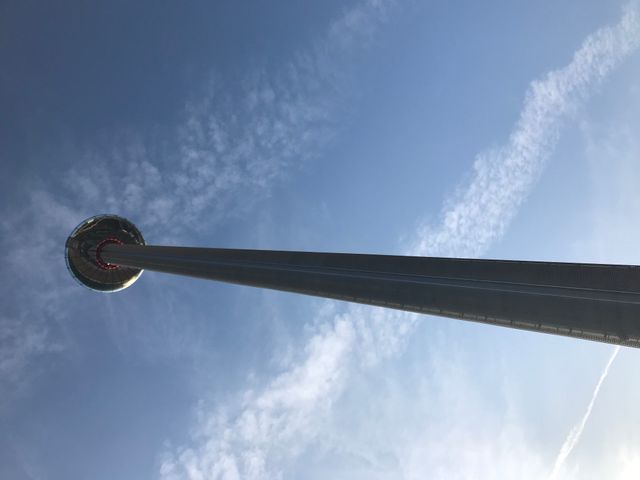The UK’s Worker Protection Act came into force last October; now is the time for all employers to act.
When I agreed to descend from the Brighton i360 (a structure 450 feet/138 metres off the ground) outside the pod to raise money for the Samaritans, I kind of expected that exiting the pod would be adrenalised. It was.
In that moment, I wasn't really thinking too much - just focussing on getting down. Now, in the post-abseil calm, there are few lessons about feeling the fear (and doing it anyway):
- We need eye contact and authentic human connection. I am grateful to the professional, confident man who diligently and routinely checked all my safety stuff. It was clear this was his day job; nothing to worry about here. I didn’t ask his name. I regret that. I wasn’t up to curiosity at that moment.
- Voice is a powerful fear regulator. He conveyed with his level tone and steady pace that all was well. It mattered so much more than the words he used.
- The body keeps the score. No matter what I ‘knew’ about how secure the harness was, my legs were going to shake and I wasn’t going to be able to will myself to stop them. It was strangely calming to notice that, and just accept it.
- Being with a team who 'get it' really helps. Thirty of us were, for this purpose, united. It mattered that they understood.
- The doing is so much better than the waiting. Once you’re underway, anxiety often drops away sharply. It's helpful to hold on to that knowledge in the build up to a fear-provoking event.
The sixth thing, and the biggest surprise? Landing was the worst. Not the physical act of landing. That was fine. But I hadn’t anticipated the people. I hadn’t thought it through. I hadn’t realised there was (literally) a spotlight on me. I felt stupid for not anticipating that the supporters would be watching. Lovely people suddenly hugging me and cheering. Did I want to take the microphone and say a few words to the crowd? No thank you. Glass of sparkling wine? Not now thanks. I was overwhelmed by a powerful need to be quiet and alone.
Turns out we have different types of comfort zone. Introverts can do abseiling....but the rest? Not so much.
I couldn’t have been in better company. The best thing about Samaritans is that they are utterly understanding and non-judgemental. I slipped quietly away to re-regulate my breathing.
If you’d like to donate to the Samaritans' abseil fundraiser, it’s not too late: https://www.justgiving.com/fundraising/alison-best4
Related Articles

Emails and emotion don't mix well

Event summary: Helping partners to show that people matter

How should men behave post Weinstein: 3 rules, 3 tips


HR Magazine: Lab employee wins €10k after HR recorded him
Amanda Okill shares guidance on the role of HR in building trust and fostering a speak up culture.


People Management: Summer party season - advice for employers
Head of Resolution Zoe Wigan writes on the best next steps if inappropriate behaviour occurs.


HR Magazine: Events manager files £250,000 lawsuit after botched summer party
When workplace events go wrong, the consequences can be serious. Zoe Wigan offers practical advice for HR teams on setting expectations, supporting managers, and creating safer, more inclusive social events.




